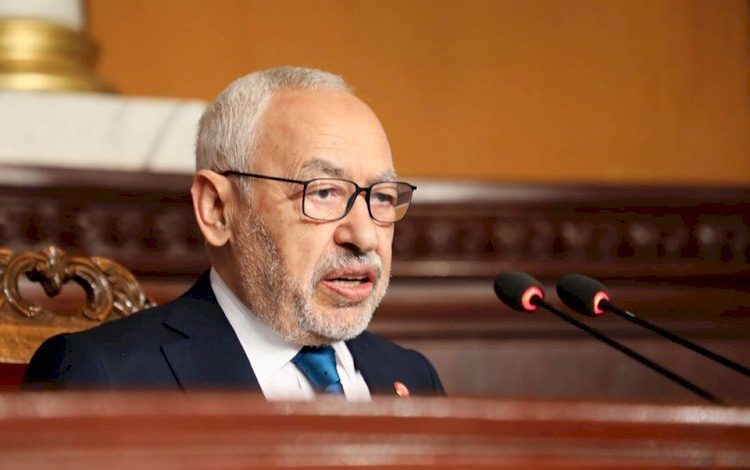Tunisia: Ghannouchi threatened with imprisonment for ‘terrorist deportation’

The Tunisian judiciary will consider, Thursday, the decision to keep Rached Ghannouchi, the head of the Muslim Brotherhood’s Ennahdha Movement, free in the case of “terrorist deportation” to Syria and hotbeds of tension.
The Tunisian judiciary said that the investigating judge in the case of terrorist travel to hotbeds of tension decided to keep the number of 39 people who are being investigated in the case of release, foremost among them Rached Ghannouchi, leader of the Tunisian Muslim Brotherhood, and his deputy Ali Larayedh.
The judicial source added that the Public Prosecution has appealed all the decisions of the investigating magistrate in the case of ” terrorist deportation to hotbeds of tension,” pointing out that the indictment department in today’s session on Thursday can revoke the previous decisions and issue arrest warrants against the accused it deems to be.
Last week, the investigating judge in the anti-terrorism judicial branch decided to postpone the hearing of Rached Ghannouchi until November 28th, and to postpone the hearing of the petition until December 19th. It was also decided to keep Brotherhood members Al-Habib Al-Lawz and Mohammed Frikha, if he is released, and to postpone listening to them for a later date.
Observers of the Tunisian political scene believe that the bombing of terrorist deportation case is in itself an important step to uncover the crimes of the Brotherhood over the past ten years.
“The postponement is understandable given the size of the case, given that the file is very large and the investigator must investigate the details of the case, which takes a lot of time,” said Hassan al-Tamimi, a Tunisian political analyst and activist.
“Ghannouchi and his entourage will not be spared from accountability for the years of terrorism they committed against the Tunisian youth,” al-Tamimi said.
He explained that 126 Brotherhood members are being interrogated in this serious case, which could result in more serious charges that could lead to the death penalty for anyone proven to be involved in this file, in which thousands of Tunisians were killed, sent to Syria and Iraq under the pretext of alleged “jihad”.
Security and official sources estimated in past years that about 6,000 Tunisians went to Syria and Iraq in the past decade to join terrorist groups, including ISIS.
Last Thursday, the Tunisian judiciary issued arrest warrants for Fathi Al-Baladi, who was previously assigned to the office of the Interior Minister and is responsible for the secret service of the Brotherhood in the ministry, Mehrez Al-Zouari, former director general of the specialized services (intelligence) in the Interior Ministry, and Saif Al-Din Al-Rais, spokesman for Ansar Al-Sharia, which is banned and classified as a terrorist organization.
In late 2012, Fatma al-Mesadi, a former member of parliament and member of the parliamentary committee investigating networks involved in recruiting and sending young people to trouble spots, filed the issue of travel with the Tunisian judiciary.
In late 2016, Tunisia formed a parliamentary committee to investigate networks involved in recruiting and sending youth to trouble spots around the world to join the fight for terrorist organizations.
Ghannouchi, 81, was summoned on July 19 to face charges of money laundering and corruption, while Ennahdha denied the charges against his leader.
The Tunisian judiciary issued a travel ban on June 27th as part of an investigation into political assassinations in 2013.












